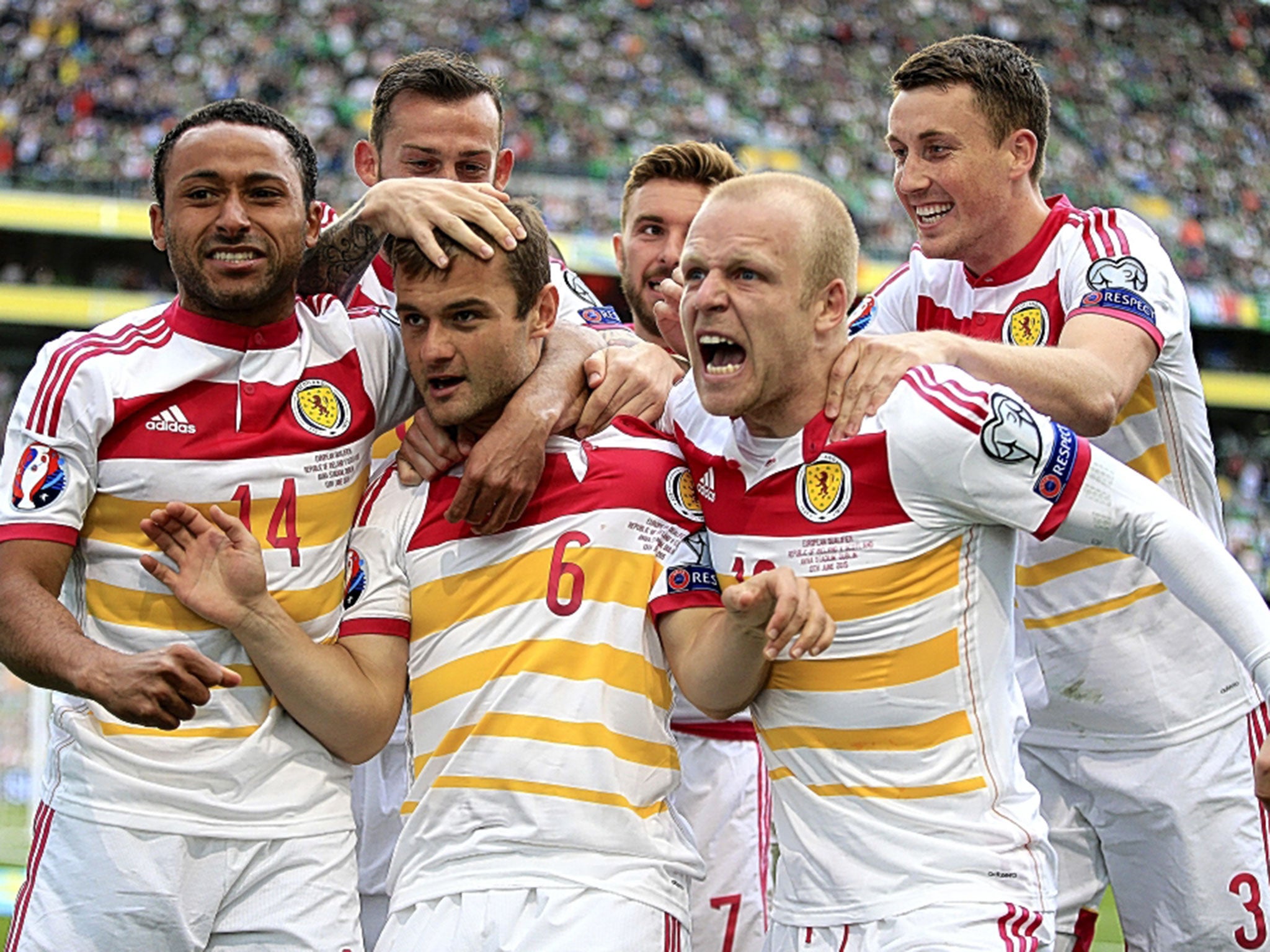Republic of Ireland 1 Scotland 1: Advantage Gordon Strachan as Dublin draw maintains lead over Martin O’Neill’s men
There are at least two ways to look at a 1-1 scoreline, but for Ireland the home draw felt like a defeat

Your support helps us to tell the story
From reproductive rights to climate change to Big Tech, The Independent is on the ground when the story is developing. Whether it's investigating the financials of Elon Musk's pro-Trump PAC or producing our latest documentary, 'The A Word', which shines a light on the American women fighting for reproductive rights, we know how important it is to parse out the facts from the messaging.
At such a critical moment in US history, we need reporters on the ground. Your donation allows us to keep sending journalists to speak to both sides of the story.
The Independent is trusted by Americans across the entire political spectrum. And unlike many other quality news outlets, we choose not to lock Americans out of our reporting and analysis with paywalls. We believe quality journalism should be available to everyone, paid for by those who can afford it.
Your support makes all the difference.The Scottish centre-half spoke of "character", "a lot of positives", "a very big point" and about being "happy with our year’s work". The Irish centre-half spoke of loss: "It felt like a defeat, I have to be honest." As Russell Martin and John O'Shea revealed after Saturday's Euro 2016 qualifier in Dublin, there are at least two ways to look at a 1-1 scoreline.
From a Scotland perspective it was about maintaining distance. They began the day two points ahead of the Irish in Group D and they finished it there too. Shaun Maloney’s deflected 46th-minute equaliser didn’t just keep the Scottish sense of momentum going, it halted the Irish just when it seemed Martin O’Neill’s team were about to generate some of their own and leapfrog the Scots into third place.
As Martin added: “I think any draw away from home in this group is a good one, but this one especially, knowing how much it meant to them. It was a must-win for them.”
Both sets of players and both managers immediately looked to the future, to the last quartet of qualifiers in September and October. Both host Germany, the world champions, and both face Poland, the current group leaders. Scotland have the Poles at Hampden Park, while the Irish are away. That could mean the difference between being in France next summer or watching on TV.
Not that either squad should be taking anything for granted. These look like the third and fourth best teams in the group and on paper this was the nation ranked 60th (Ireland) in the world against the one ranked 28th. Poland are 32nd. The group’s degree of difficulty has perhaps been overstated.
Expectations of flowing football should have proceeded from there. With eight of the 22 starters having been either in England’s Championship, or about to be, there was a lack of creativity to lift the quality of play.
The Scotland manager, Gordon Strachan, was as inventive as anyone on the pitch when he described what he had just seen: “There are times when you would love to play great football, but there are other times when you need to put on the working dungarees and get stuck in.”
Some tried to alter the feel from painting and decorating to artistry. Wes Hoolahan of Norwich City did his jinking best to manoeuvre the Irish into threatening positions and it was a surprise to see him replaced with 20 minutes to go by Robbie Keane.
Ikechi Anya (Watford) changed Scotland’s tempo from sluggish to quick when he was introduced at half-time and stimulated Steven Naismith in the process.
There were passages of neat possession football from both sides, but then there spells of dogged midfield scuffling, individual errors, passes played directly into touch. Strachan was critical – and self-critical – of Scotland’s first-half display.
“The system we used wasn’t working because we weren’t passing the ball well enough,” he said. He had the wherewithal to rectify it.
Scotland were 1-0 down at the interval. Jon Walters had banged in a close-range shot on 38 minutes, though he was offside when Daryl Murphy flicked a header to set up the chance.
O’Neill felt the Irish were “dominant” then and in terms of territory they were superior. But there was no string of saves from David Marshall to reflect some great home menace and Martin was blunt when he said: “The way they played was even more route one than in Glasgow.”
O’Neill will take exception to that. While Strachan can be relatively relaxed over the summer, the Republic’s manager will have cause for thought. In the green post-mortem, there is even a smattering of post-Martin.
Across Ireland there is fretting – legitimate – that there is no next generation. O’Neill talked of Bournemouth’s Harry Arter, 25, as someone to look to and he missed Aiden McGeady, 29, through injury. Up front, Murphy, 32, was selected ahead of Shane Long, 28. O’Shea is 34, Keane is 34, Hoolahan is 33, Walters and Glenn Whelan 31; Shay Given is 39.
O’Neill said: “I think that’s maybe for another day.” You knew what he meant, but it is an issue as pressing as qualification for France.
Join our commenting forum
Join thought-provoking conversations, follow other Independent readers and see their replies
Comments